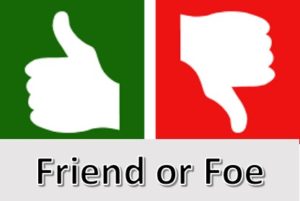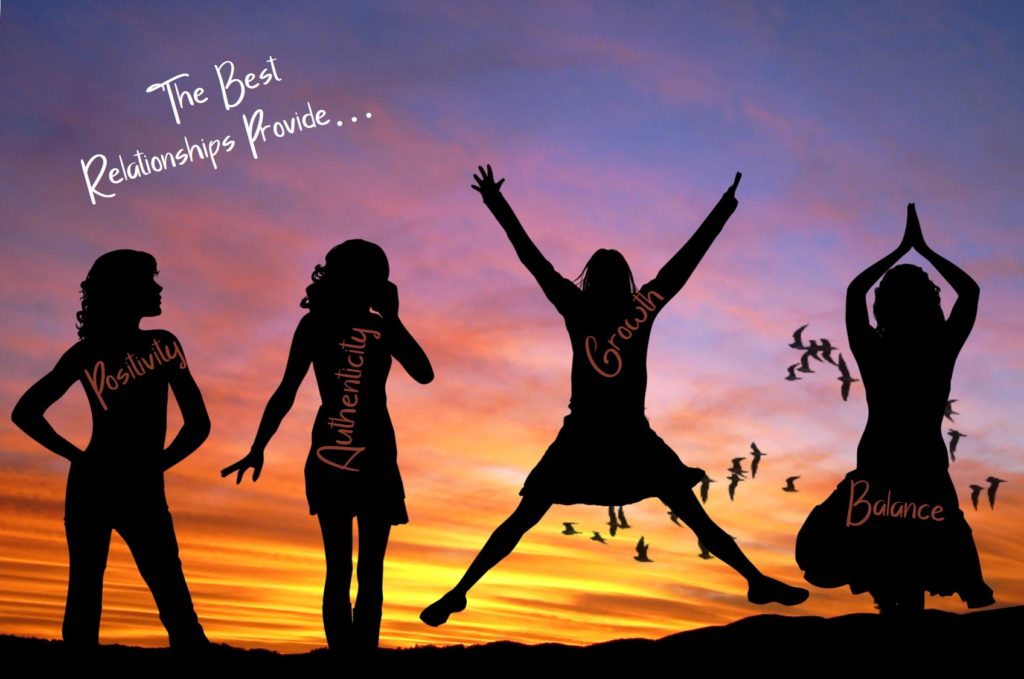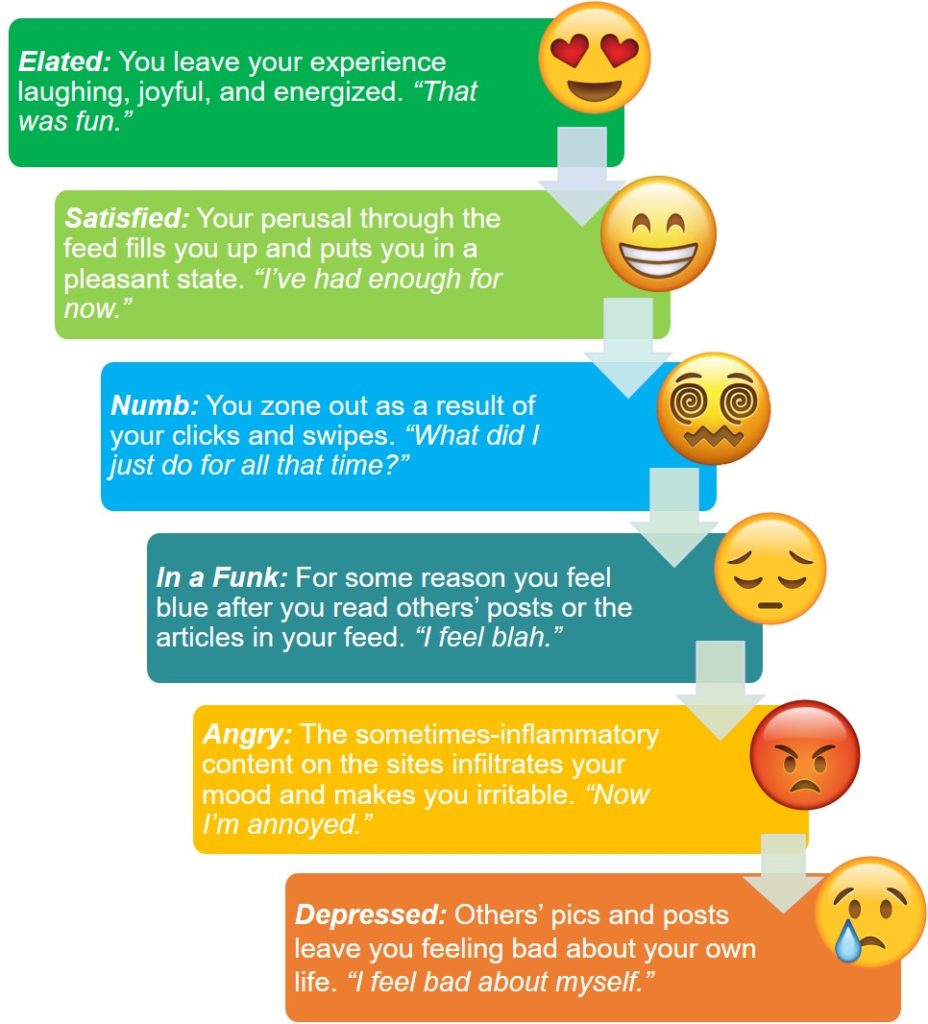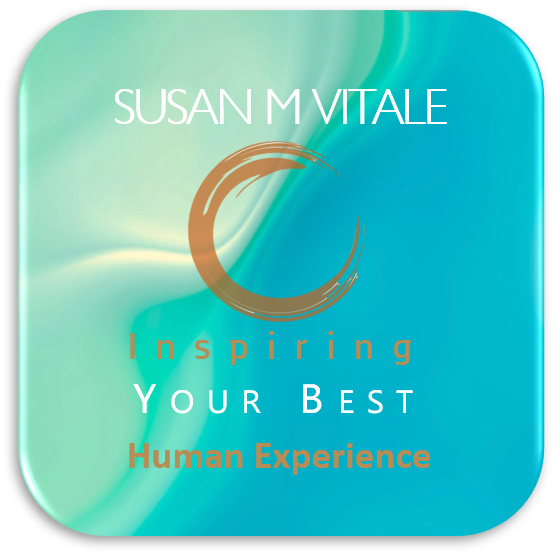Redefining Your Relationship with Social Media
3 Tips to Examine and Improve How You Dance on the Social Platform By Susan M Vitale
For years I’ve had a love-hate relationship with social media. It calls for my attention when there are easily 100 better ways to use my time. At best it pulls me into a web of recurring quotes, charming pets, and mouthwatering recipes. At worst, I become snagged in the political debates, sensation-seeking articles, or high drama clogging the news feed these days.
Over the last year, I began to step away from social media to invest my time in writing blogs and working on a book that’s been in my heart and head for the last few years. With the book’s draft half written, I began to explore methods and approaches to publishing. Imagine my shock and dismay when I learned that the number one tool used today to catch a publisher’s eye is (you guessed it): Social Media.

Social Media: Friend or Foe?
Bravely, and admittedly warily, I’ve begun dancing with social media again. Even as a full-grown adult with both feet firmly planted on the ground (for the most part), I’m noticing that cavorting in the Twitter-verse and deepening my interactions with FB and Insta sometimes erode my mental or emotional outlook. At once, social media offers likes and loves with their allure of validation, allows posts to take me to the edge of intimacy and vulnerability, and in its silence, presents a constant risk of rejection. As I’ve begun to explore and expand my relationship with social media, I find it tests daily everything I write about and teach. In fact, everything I believe. In the beginning, I treated social media as a necessary evil. I found myself using those actual words to describe my choice to employ it as a marketing device. It soon dawned on me, however, that my life philosophy (your thoughts and words create your reality) demanded I find a more positive way to think and speak about it if I expected to gain any benefit at all.
A New Perspective

The new perspective I chose was to think about social media as a friend, someone there to support me and help me, someone with whom I could work to achieve common goals. The new outlook led to some interesting questions as I went on my first few outings with social media:
- “Would I allow a friend to treat me that way?”
- “Would I spend time with a person who made me feel this way?”
- “Would I put that much value in the judgment or opinion of a so-called friend?”
- “Would I invest this much time with any friend?”
With the intention of sharing what I’ve experienced and learned, I invite you to join me in pretending social media is a friend with whom we, collectively, have chosen to have a relationship. Let’s see how we can shift the quality of our experience with it.
Measures of a Good Relationship
For starters, let’s define what makes for a good relationship. The best relationships provide:
- Positivity. We walk away from most interactions feeling hopeful, happy, or with improved mood, self-esteem, and energy.
- Authenticity. They allow us to be real. We feel no need to alter ourselves, hide our truth, or heavily edit our thoughts and words to fit someone else’s standards.
- Growth. We learn, expand, and challenge ourselves in a way that benefits everyone else we meet after.
- Balance. We experience a give-and-take with healthy boundaries in between.

Signs that Your Relationship with Social Media Can Use Some Therapy
Sign #1 Interacting with social media negatively affects your mood. There are many reasons to spend time on one of the multiple social media sites, but it’s important to notice how the visits leave you feeling. For the next few days, using the mood assessment guide below, notice how you feel after interacting with one of the many sites. Just like you wouldn’t spend time with a friend who puts you in a bad mood, the same is true for social media.

Remedy 1
If you find your time on FB, or Insta, Snap or Twitter leaves you too often on the low end of the mood spectrum, practice this mantra:

The mantra serves as a reminder that you can choose where to put your time and energy. More importantly, whatever you focus your energy on will grow. If you focus on posts that make you angry, you’ll become angrier. If you choose to put your time and energy into activities that fill you, you’ll feel more and more satisfied. Your energy is finite. Choose how to use it.
Sign #2 You invest a lot of energy in the number of comments or likes you get. Speaking of energy, notice how much time and energy you invest in the reactions you get to your posts. Do you rely, in any way, on likes and comments to define your self-image? If you do think for a moment about how much time and effort you put into the random decisions to like or support someone else’s post. Continuing with the analogy, if social media were just a friend, would you place your self-esteem or total self-image in the hands of any one person in your life? Consider the power you’ll relinquish before you choose to give random likes and comments too much of your time and attention.
Remedy 2
If you find yourself fixating on social media, and particularly on the traction your posts get, practice this mantra:

The mantra is a reminder that no one selfie perfectly portrays the depth of your spirit. No one witty caption captures your brilliance or your sense of humor. Similarly, no number of likes, shares, or comments confer a measure of the whole and truest you.
Sign #3 You find yourself comparing you or your life to that of others. Remember, everyone puts their best face forward on social media, even if what they post is not a true representation of the ups and downs in their real world. Rarely do we see a post or a story that conveys someone’s deepest pain, greatest worry, or most epic failure. Yet, we fall into the trap of comparing and contrasting our lives to the ones we see displayed in social media feeds.
Remedy 3
If you find yourself feeling “less than” as you compare your life to the one portrayed by friends, practice this mantra:

Remember, you are likely the only one suffering from your needless comparisons between your life and what you perceive to be others’ experiences on social media. The choice to engage in a one-sided, ill-fated, and misleading competition is all yours.
Do You and Social Media Need to Take a Break?
It’s no surprise that social networking consumes a large percentage of our time. A recent study reported the average person spends approximately 116 minutes on social media every day, for a total of 5 years and 4 months in a lifetime. That’s more than eating and grooming combined. The hours spent on social platforms by the average person in their life equate to the time required to run 10,000 marathons, read 28,000 books, or walk the dog 93,000 times.

Consider this…If you’re spending that much time on your commitment, it better pay off. If your relationship with social media depletes your mood, compels you to chase “likes”, or undercuts your life’s value through an unwinnable competition with others’, practice the mantras. If that doesn’t work, try another option. Lace up your sneakers, pick up that novel, or take Scruffy for a walk. Tell social media, “It’s not you, it’s me.” Then change your status and take a break.
©Susan M Vitale, 2019

